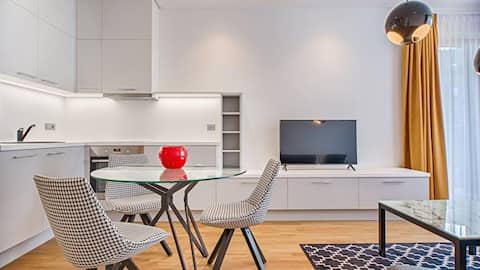Why glass tables are a reg flag in Feng Shui
What's the story
Our dining and living areas serve as pivotal spaces, fostering intimate gatherings with loved ones while also impacting our emotional well-being beyond mere entertainment.
As per Feng Shui, seemingly innocuous furnishings can disrupt the flow of energy within a space.
This highlights the importance of creating a harmonious atmosphere through careful attention to details like color choices, textures, and shapes of furniture arrangements.
Grounding
Why choose wood
According to Feng Shui principles, materials like wood and stone are revered for their grounding properties, fostering a sense of security and connection to the earth.
Wood represents growth and adds a sense of warmth to a room.
Additionally, chairs with tall backs can enhance feelings of stability, protection, and security for those gathered around a table.
Fragile
Why not glass
Glass, on the other hand, is inherently fragile and lacks the solidity associated with more substantial materials.
Its transparent nature creates a sense of instability, symbolizing fragility and susceptibility to breakage.
In Feng Shui, this fragility translates metaphorically, potentially introducing instability and insecurity into the lives of those who inhabit spaces adorned with glass tables.
Distorts energy
Reflecting negative energy
Additionally, the reflective surface of glass tables presents another concern in Feng Shui practice.
Reflective surfaces have the potential to amplify and distort energy, bouncing it back into space in unpredictable ways.
In environments where negative energy is present, such as cluttered or chaotic spaces, glass tables can exacerbate the problem by reflecting and magnifying these negative influences.
Shape
Smooth corners
Feng Shui advises favoring oval and round tables as they allow people the freedom to sit in any direction and lack corners, which can potentially transmit negative energy or "sha chi" according to this practice.
For smaller groups, square or rectangular tables with smooth edges can be acceptable, as sharp edges may lead to discomfort and tension among those seated around it.
3 principles
Fostering strength
When selecting a dining table or coffee table, it is beneficial to prioritize characteristics such as harmony, stability, and strength, as they foster open communication.
Wood, renowned for its warmth, embodies these qualities, contrasting with glass, which can convey fragility and instability.
An alternative approach could involve placing a glass sheet atop a wooden table and merging the aesthetic appeal of both materials.
Lighting
Soft and warm
When it comes to illuminating your dining room and table, prioritize warm lighting to eliminate shadows, offering a soft and even glow.
This approach establishes a focal point that draws everyone's attention, fostering a natural and dynamic interaction among diners.
Soft, diffused lighting fixtures, such as pendant lights or chandeliers, can help achieve a warm and inviting atmosphere.
